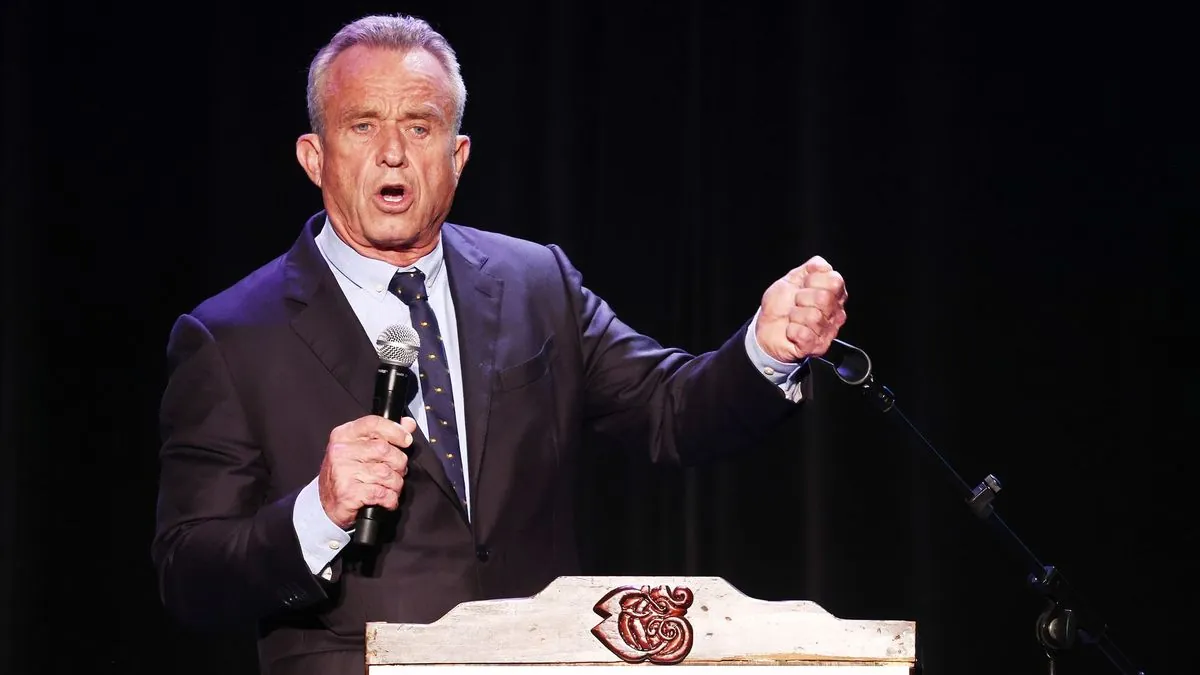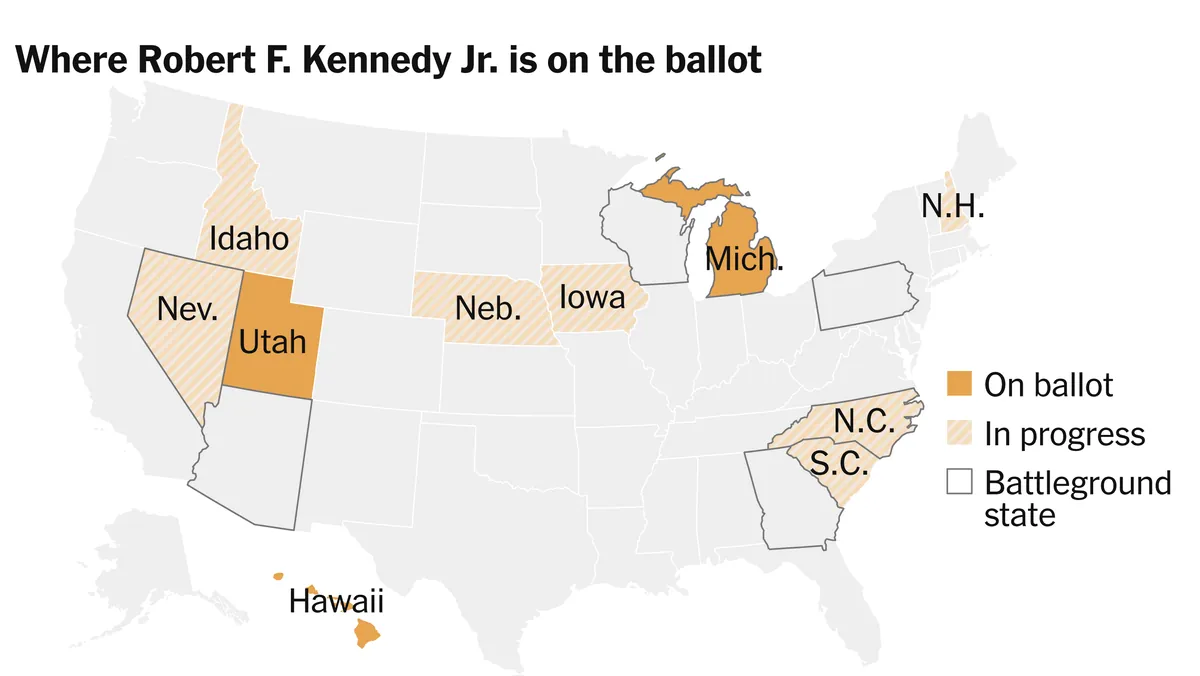Kennedy's Legal Battle to Exit NC Ballot Amid Election Preparations
Robert F. Kennedy Jr. sues North Carolina's election board to remove his name from the 2024 presidential ballot. The board rejected his request, citing advanced ballot printing and looming deadlines.

Robert F. Kennedy Jr. has initiated legal action against the North Carolina State Board of Elections in an effort to have his name removed from the state's 2024 presidential election ballot. This move comes after Kennedy suspended his campaign and endorsed Donald Trump in August 2024.
The lawsuit, filed in Wake County Superior Court on August 30, 2024, alleges that the board's refusal to remove Kennedy's name violates state election law and infringes upon his right to free speech. Kennedy's legal team argues that immediate court intervention is necessary due to approaching election deadlines.
Kennedy's strategy involves withdrawing from ballots in competitive states like North Carolina while maintaining his presence in less contested areas such as New York. This selective approach aims to minimize potential impact on the race between Trump and Kamala Harris.

On August 29, 2024, the North Carolina board voted 3-2 along party lines to keep Kennedy and his running mate, Nicole Shanahan, on the ballot under the "We The People" party line. The Democratic majority cited the advanced stage of ballot preparation, with 67 of 100 counties having begun the printing process.
"When we talk about the printing a ballot we are not talking about ... pressing 'copy' on a Xerox machine. This is a much more complex and layered process."
The board's executive director, Karen Brinson Bell, reported that over 1.7 million ballots had already been printed by the main vendor serving most counties. Reprinting would incur substantial costs, potentially reaching hundreds of thousands of dollars.
Republican board members proposed delaying the statutory deadline for absentee ballots as a potential solution. However, this suggestion was not adopted by the majority.
The situation highlights the complexities of ballot access and election administration in the United States. Each state has its own laws and procedures, making it challenging for candidates to navigate the system, especially when circumstances change close to election day.
As a swing state, North Carolina's electoral votes are particularly valuable in the presidential race. The presence or absence of a third-party candidate like Kennedy could potentially influence the outcome in a close contest.
This legal battle underscores the tension between candidate rights, election integrity, and logistical constraints. As the November 2024 election approaches, the court's decision will be closely watched by political observers and election officials alike.


































